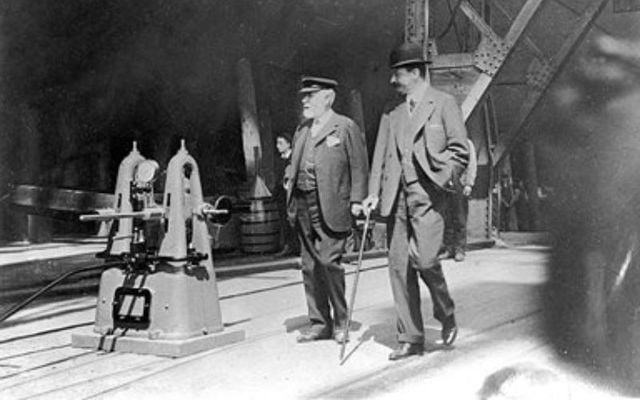The government has condemned Israel's "impunity" as stepped up air strikes on Syria, with jets hitting military targets, including an airport. Wednesday's attacks, which included ground incursions, killed 13 people, with Israel claiming it was responding to fire from gunmen during an operation in the south. It marks the deepest movement of Israeli ground forces into Syria since the overthrow of Bashar al-Assad in December.
In a statement, Syria said the Israeli attacks were interfering with attempts to rebuild the country after 14 years of civil war. "These repeated attacks form part of a clear Israeli strategy to normalise violence once again within the country, undermining recovery efforts and entrenching a culture of impunity," they said. The attacks have come as Turkey begins efforts to take control of Syria’s northern Tiyas air base, also known as T4, with plans to deploy air defence systems there.

Sources familiar with the matter Middle East Eye earlier this week that Ankara and Damascus have been negotiating since December. The agreement would see Turkey providing air cover and military protection for Syria’s new government, which currently lacks a functioning military. Negotiations have continued even after Turkish officials downplayed the possibility of a military presence in Syria, describing such plans as premature.
While a Turkish military presence in Syria as a potential threat, Ankara aims to stabilise the country by leveraging its military capabilities and filling the power vacuum left by the withdrawal of and . “A Hisar-type air defence system will be deployed to T4 to provide air cover for the base,” a source familiar with the matter told MEE. “Once the system is in place, the base will be reconstructed and expanded with necessary facilities.
Ankara also plans to deploy surveillance and armed drones, including those with extended strike capabilities.” According to the military news website The War Zone, low-resolution satellite images show that previous Israeli air strikes two large crater areas in T4’s runway, rendering it virtually impossible for any heavy-lift transport planes to land. 'With the fall of the Assad regime, Israel sees a united Syria as a geopolitical risk' Omer Ozkizilcik, a non-resident fellow for the Syria Project in the Atlantic Council’s Middle East Programs, told MEE that Israel's prime aim in Syria was to have a "weak Damascus".
"With the fall of the Assad regime, Israel sees a united Syria as a geopolitical risk. Its strategy to exploit especially the Druze, but also the Kurds and the Alawites to prevent a unified Syria is not going as Israel hoped," he said. "So Israel is lobbying to maintain US sanctions against Syria and continues to target positions in Syria to prevent stability and refugee returns.
" Ozkizilcik said the deployment of Turkish air defences and air force to Syria would limit Israel's freedom to control the skies over the country. "Turkey's role in Syria will have no effect towards Israel. It will focus on countering [the Islamic State group] as Turkey wants to convince Trump to withdraw from Syria and to deter a possible -led attack on Syria from or .
I think Israel also knows this," he explained. "In short, Israel doesn't see a threat from Turkey in Syria but doesn't want to be contained in its current operational freedom to bomb Syria.".
Syria criticises Israel's 'impunity' after air strikes on its territory

Syria criticises Israel's 'impunity' after air strikes on its territory Submitted by Alex MacDonald on Thu, 04/03/2025 - 10:25 Attacks come as Turkey moves to take control of key military base in north An Israeli fighter jet pictured in September 2024 (Gil Cohen-Magen/AFP) Off The Syrian government has condemned Israel's "impunity" as Israel stepped up air strikes on Syria, with jets hitting military targets, including an airport.Wednesday's attacks, which included ground incursions, killed 13 people, with Israel claiming it was responding to fire from gunmen during an operation in the south.It marks the deepest movement of Israeli ground forces into Syria since the overthrow of Bashar al-Assad in December.In a statement, Syria said the Israeli attacks were interfering with attempts to rebuild the country after 14 years of civil war."These repeated attacks form part of a clear Israeli strategy to normalise violence once again within the country, undermining recovery efforts and entrenching a culture of impunity," they said. (adsbygoogle = window.adsbygoogle || []).push({}); The attacks have come as Turkey begins efforts to take control of Syria’s northern Tiyas air base, also known as T4, with plans to deploy air defence systems there.Sources familiar with the matter told Middle East Eye earlier this week that Ankara and Damascus have been negotiating a defence pact since December.The agreement would see Turkey providing air cover and military protection for Syria’s new government, which currently lacks a functioning military.Negotiations have continued even after Turkish officials downplayed the possibility of a military presence in Syria, describing such plans as premature.'Freedom to bomb Syria'While Israel views a Turkish military presence in Syria as a potential threat, Ankara aims to stabilise the country by leveraging its military capabilities and filling the power vacuum left by the withdrawal of Russia and Iran.“A Hisar-type air defence system will be deployed to T4 to provide air cover for the base,” a source familiar with the matter told MEE.“Once the system is in place, the base will be reconstructed and expanded with necessary facilities. Ankara also plans to deploy surveillance and armed drones, including those with extended strike capabilities.” (adsbygoogle = window.adsbygoogle || []).push({}); According to the military news website The War Zone, low-resolution satellite images show that previous Israeli air strikes created two large crater areas in T4’s runway, rendering it virtually impossible for any heavy-lift transport planes to land.'With the fall of the Assad regime, Israel sees a united Syria as a geopolitical risk'- Omer Ozkizilcik, Atlantic CouncilOmer Ozkizilcik, a non-resident fellow for the Syria Project in the Atlantic Council’s Middle East Programs, told MEE that Israel's prime aim in Syria was to have a "weak Damascus"."With the fall of the Assad regime, Israel sees a united Syria as a geopolitical risk. Its strategy to exploit especially the Druze, but also the Kurds and the Alawites to prevent a unified Syria is not going as Israel hoped," he said."So Israel is lobbying to maintain US sanctions against Syria and continues to target positions in Syria to prevent stability and refugee returns."Ozkizilcik said the deployment of Turkish air defences and air force to Syria would limit Israel's freedom to control the skies over the country."Turkey's role in Syria will have no effect towards Israel. It will focus on countering [the Islamic State group] as Turkey wants to convince Trump to withdraw from Syria and to deter a possible Iran-led attack on Syria from Iraq or Lebanon. I think Israel also knows this," he explained."In short, Israel doesn't see a threat from Turkey in Syria but doesn't want to be contained in its current operational freedom to bomb Syria." Syria after Assad News Post Date Override 0 Update Date Mon, 05/04/2020 - 21:19 Update Date Override 0











